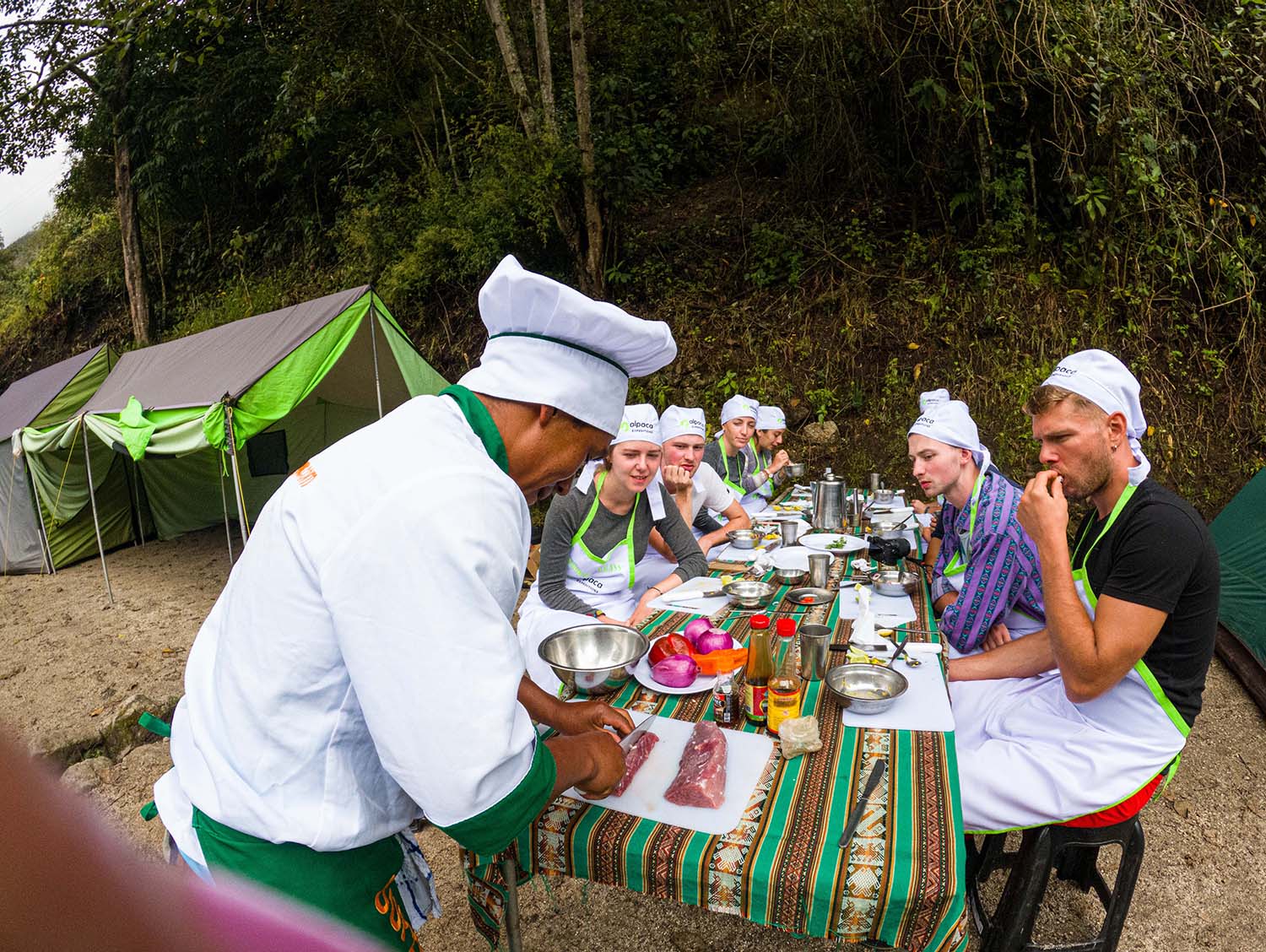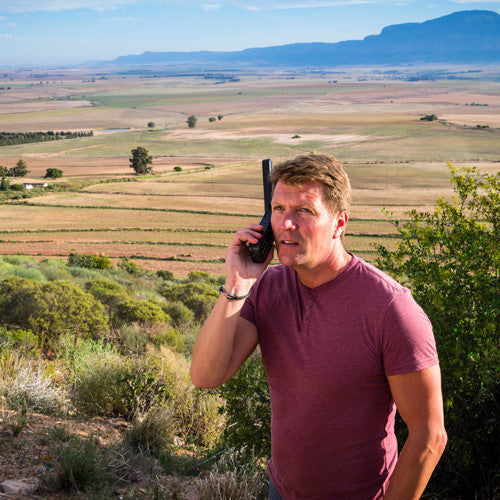Inca Trail Sustainability: Eco-Friendly Practices and Responsible Tourism
Sustainability and responsible tourism have become pivotal in the global travel industry. Emphasizing the need to minimize environmental impact and prioritize the well-being of local communities in the Inca Trail trek. As we embark on the journey of exploring the Inca Trail, a jewel of historical and cultural significance. It becomes imperative to understand and advocate for practices that ensure its preservation for generations to come.
The Inca Trail, winding through the breathtaking landscapes of Peru, is not just a pathway to the majestic Machu Picchu. But a living testament to the ancient Inca civilization. Sustainability in this context goes beyond minimizing carbon footprints. It encompasses a holistic approach to protecting the natural environment and the cultural heritage embedded in every stone of trail.
Preserving the Trail is not merely a responsibility; it is an acknowledgement of our role as stewards of the Earth. The delicate balance between providing access for modern travelers and safeguarding the trail’s integrity requires a commitment to responsible tourism practices. Alpaca Expeditions stands as a beacon, dedicated to weaving sustainable principles into the fabric of every expedition, ensuring that the beauty and essence of the Inca Trail endure, untouched by the passage of time or the footprints of those who tread upon it.
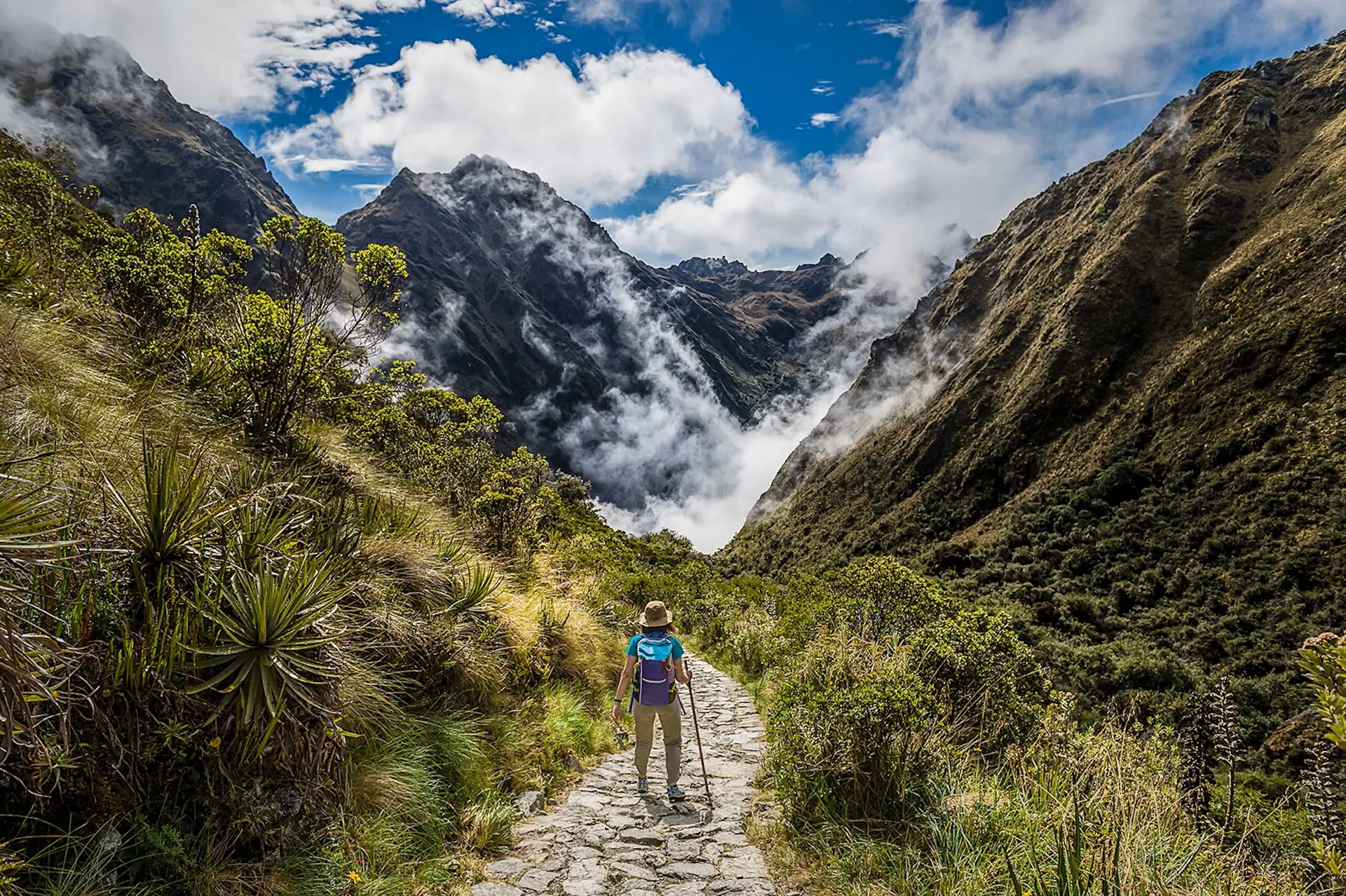
Join us on a journey where each step is a testament to our commitment to sustainability. And the reverence we hold for the natural and cultural heritage of the Inca Trail.
The Significance of Inca Trail Sustainability
The Inca Trail, a winding path through the Andes leading to the awe-inspiring Machu Picchu. It holds profound historical and cultural significance. Dating back centuries, this trail served as a sacred pilgrimage route for the Inca people. It connects their imperial capital, Cusco, to the sacred citadel of Machu Picchu. Stones laid by the Inca civilization along this route not only mark a physical journey but also symbolize spiritual passage.
This historical marvel is not merely a trekking route; it is a living testament to the ingenuity of Inca engineering and the rich cultural tapestry of the region. The Inca Trail weaves through diverse landscapes, passing by ancient ruins, terraced fields, and breathtaking vistas, providing a tangible link to the past.
However, the increasing popularity of this route raises concerns about its preservation. As footfalls increase, so does the potential for environmental degradation and cultural erosion. To safeguard the Inca Trail for future generations, sustainable practices are imperative. Conservation efforts must focus on minimizing the ecological impact, respecting the trail’s cultural heritage, and ensuring that each traveler becomes a responsible custodian of this historical gem.
By embracing sustainability, we not only protect the Inca Trail but also honor the profound legacy it represents—a legacy that deserves to be passed on intact to the generations yet to come.
Our Commitment to Inca Trail Sustainability
We stand at the forefront of sustainable and responsible tourism. By showcasing a deep commitment to preserving the natural and cultural treasures of the Inca Trail. The company’s dedication to sustainability is evident in its comprehensive initiatives aimed at minimizing environmental impact.
We employ eco-friendly camping practices, utilizing sustainable materials and low-impact equipment to leave minimal traces on the trail. Waste management programs ensure responsible disposal, and their commitment extends to supporting local communities. It fosters economic growth, and providing fair wages to their team.
Prioritizing sustainability, we not only enhance the trekking experience for adventurers but also contributes to the long-term preservation of the Inca Trail. It fosters a harmonious balance between exploration and conservation.
Eco-Friendly Camping Practices
We take pride in its eco-friendly camping practices, ensuring a harmonious coexistence between adventure and environmental preservation along the Inca Trail. Waste management is a top priority, with the company implementing a strict “Leave No Trace” policy. Every bit of waste is carefully managed, either recycled or carried out, minimizing any impact on the delicate ecosystems surrounding the trail.
Sustainable materials are integral to our’ ethos. Tents, sleeping bags, and camping gear are carefully chosen for their eco-friendly properties, emphasizing durability while minimizing environmental footprint. This dedication extends to the use of reusable and recyclable materials in meal packaging, reducing single-use plastics.
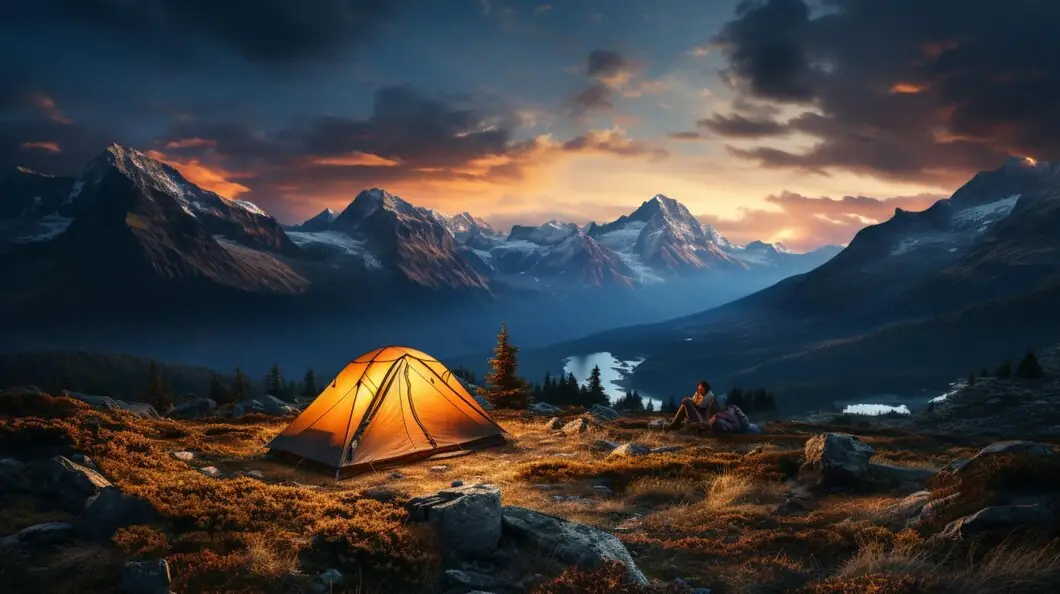
Additionally, the company invests in eco-friendly camping equipment, such as low-impact stoves and solar lanterns, minimizing reliance on traditional energy sources. By incorporating these practices, we not only provide a comfortable camping experience for trekkers but also sets a standard for responsible tourism.
Through these initiatives, the company ensures that the Inca Trail remains an unspoiled marvel, inviting future generations to experience its beauty and cultural richness without compromising the delicate ecosystems it traverses.
Local Community Involvement
We go beyond offering breathtaking treks; it actively engages with and uplifts the local communities along the Inca Trail. Recognizing the intrinsic connection between tourism and community well-being, the company prioritizes initiatives that contribute to the region’s economic growth and development.
We firmly believe in supporting local economies. It sources supplies locally, ensuring that nearby communities benefit directly from the tourism industry. By forging partnerships with local businesses, the company creates a sustainable cycle of economic empowerment.
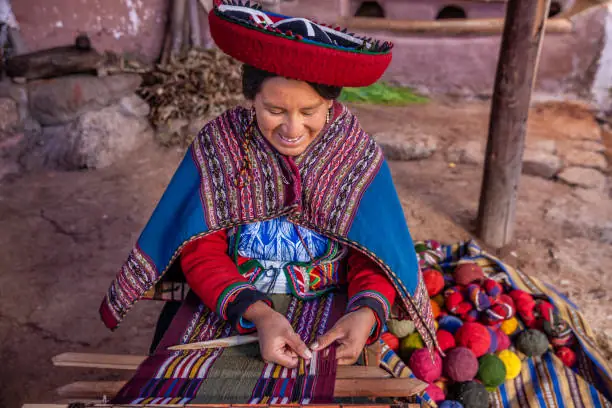
The commitment to community development extends to employment opportunities. We prioritize hiring local guides and staff, providing them with valuable skills and fair wages. This not only enhances the quality of service but also directly contributes to the well-being of the surrounding communities.
Furthermore,
we actively engage in philanthropic endeavors, investing in projects that address community needs, such as education and healthcare. Fostering this relationship between tourism and community welfare, we ensure that every trek along the Trail becomes a catalyst for positive change. It leaves a lasting, positive impact on the lives of those who call this culturally rich and historically significant region home.
Leave No Trace Principles
We advocate for the “Leave No Trace” principles, guidelines crucial for preserving the pristine beauty of the Inca Trail. These principles emphasize responsible outdoor practices. It urges trekkers to minimize their impact on the environment. The company educates visitors on proper waste disposal, encouraging the packing out of all trash to maintain the trail’s natural integrity.
Minimizing the environmental impact is paramount, considering the fragile ecosystems traversed during the Inca Trail trek. We instill the importance of staying on designated paths, avoiding disturbance to flora and fauna. By adhering to “Leave No Trace,” trekkers contribute to the long-term conservation of this UNESCO World Heritage site.
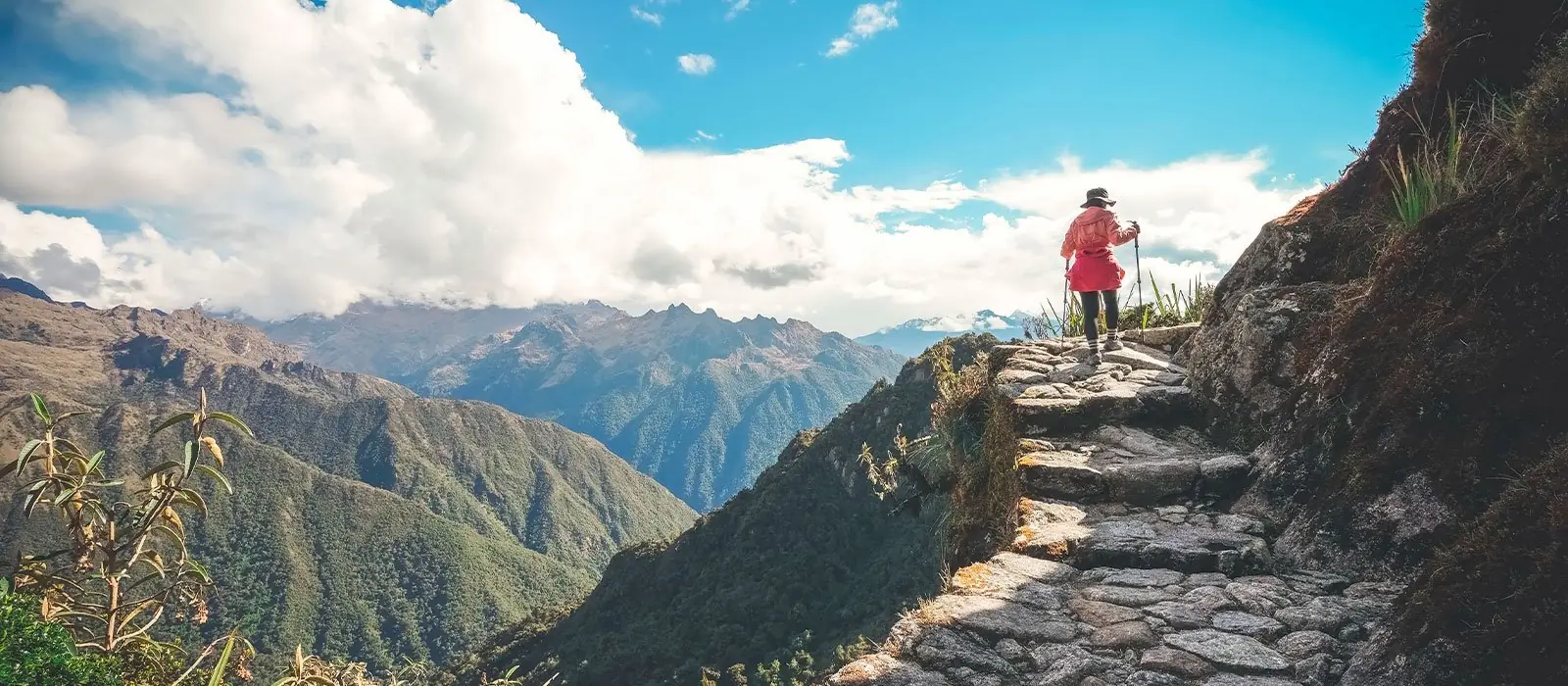
We act as a steward for responsible tourism, ensuring that every adventurer not only enjoys the transformative journey. But leaves behind only memories, allowing the Inca Trail to remain an unspoiled testament to nature’s wonders.
We take pride in its commitment to education, recognizing it as a cornerstone for promoting responsible tourism behavior among guides and travelers on the Inca Trail. For guides, comprehensive educational programs are implemented. Which ensures a deep understanding of the cultural, historical, and environmental aspects of the trail. These programs go beyond the conventional guide training, fostering a sense of responsibility towards preserving the trail’s integrity.
Educational Programs for Guides and Travelers
Travelers embarking on the Inca Trail with us are not merely participants but also learners. The company believes that an informed traveler is an empowered one. Orientation sessions are conducted, offering insights into the ecological significance of the trail, local customs, and the importance of sustainable trekking practices. Guides act as interpreters, bridging the gap between visitors and the rich heritage they are traversing.
Through interactive discussions and informative sessions, travelers gain an appreciation for the delicate balance between tourism and conservation. We believe that an educated traveler is more likely to engage in responsible behaviours. Such as adhering to “Leave No Trace” principles, respecting local cultures, and contributing to the preservation of this iconic route.
By investing in education, we ensure that every journey becomes an opportunity for both guides and travelers to be stewards of the Inca Trail’s cultural and environmental legacy.
Tips for Responsible Hiking
Embarking on the Inca Trail trek is a thrilling adventure, and responsible hiking ensures the preservation of this iconic route. We encourage travelers to adopt eco-conscious practices for a sustainable trek:
Waste Disposal:
- Carry a reusable water bottle and refill at designated stations to minimize plastic waste.
- Pack out all litter, including biodegradable items like food scraps, to maintain the trail’s pristine environment.
Respecting Local Cultures:
- Learn and follow local customs; seek permission before taking photographs of people or cultural sites.
- Engage with local communities respectfully, supporting their traditions and purchasing handmade crafts responsibly.
Minimizing Ecological Impact:
- Stick to designated trails to avoid damaging fragile ecosystems.
- Stay in established campsites and refrain from disturbing wildlife; appreciate from a distance.
Cultural Sensitivity:
- Dress modestly and appropriately, respecting the cultural norms of the local communities.
- Be mindful of noise levels, especially near sacred sites, to maintain a peaceful environment.
Educate Yourself:
- Attend orientation sessions to understand the ecological significance of the trail and the local culture.
- Familiarize yourself with “Leave No Trace” principles and incorporate them into your hiking practices.
By incorporating these tips into your hiking routine, you contribute to the sustainability of the Inca Trail. Which makes sure that future generations can also experience its beauty and cultural richness. Responsible hiking is a collective effort to preserve this historical treasure for years to come.
Interesting Facts about the Inca Trail:
- Historical Pilgrimage: The Inca Trail served as a sacred pilgrimage route for the Inca people, connecting their capital, Cusco, to the revered citadel of Machu Picchu
- Ingenious Engineering: The trail showcases the incredible engineering prowess of the Inca civilization, with meticulously laid stones marking not just a physical journey but a spiritual passage
- Cultural Tapestry: Winding through diverse landscapes, the trail takes trekkers past ancient ruins, terraced fields, and breathtaking vistas, providing a tangible link to the rich cultural tapestry of the region
- Environmental Concerns: The increasing popularity of the Inca Trail trek raises concerns about potential environmental degradation and cultural erosion as foot traffic intensifies
-
Alpaca Expeditions’ Commitment:
Alpaca Expeditions stands as a leader in sustainable tourism, weaving eco-friendly principles into every expedition to ensure the trail’s preservation
- Eco-Friendly Camping: The company prioritizes eco-friendly camping practices, employing sustainable materials, low-impact equipment, and waste management programs to leave minimal traces on the trail
- Local Community Upliftment: Alpaca Expeditions actively engages with and supports local communities, sourcing supplies locally, creating employment opportunities, and investing in projects addressing community needs
- “Leave No Trace” Principles: The company advocates for and educates trekkers on the importance of “Leave No Trace” principles, minimizing their impact on the environment and preserving the trail’s natural integrity
- Comprehensive Education: Guides undergo extensive educational programs, ensuring a deep understanding of the trail’s cultural, historical, and environmental aspects, fostering a sense of responsibility
- Traveler Empowerment: Travelers are not just participants but learners, with orientation sessions providing insights into the ecological significance of the trail, local customs, and sustainable trekking practices
- Responsible Hiking Tips: From waste disposal to respecting local cultures and minimizing ecological impact, responsible hiking practices are encouraged for a sustainable trek
In embracing these interesting facts and committing to responsible tourism, every visitor becomes a guardian of the Inca Trail. Making sure its beauty and significance endure for generations to come.
Conclusion
In conclusion, sustainable and responsible tourism on the Inca Trail trek is paramount for preserving its cultural and environmental legacy. We exemplify this commitment through eco-friendly camping, community engagement, and comprehensive education.
Travelers play a crucial role by adopting responsible hiking practices, respecting local cultures, and minimizing their ecological impact. By choosing eco-friendly options and embracing these principles, each visitor becomes a guardian of the Inca Trail. So that we can ensure its beauty and significance endure for generations.
Let’s collectively embark on this journey with a deep sense of responsibility, leaving behind a positive footprint on this remarkable path to Machu Picchu.
Alpaca Expeditions Recognitions
ISO (International Organization for Standardization)
In the pursuit to stand out from the rest, Alpaca Expeditions has obtained four ISOs plus our carbon footprint certificate to date. These achievements result from our efforts to implement the internationally-recognized integrated management system. They also represent our commitment to all of our clients and staff of operating sustainability and responsibility in every way possible.
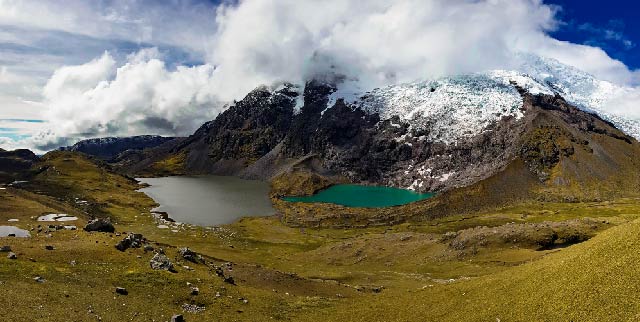

































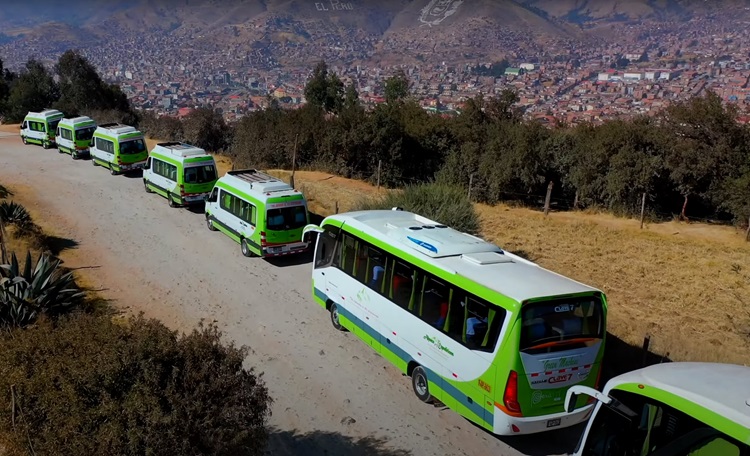
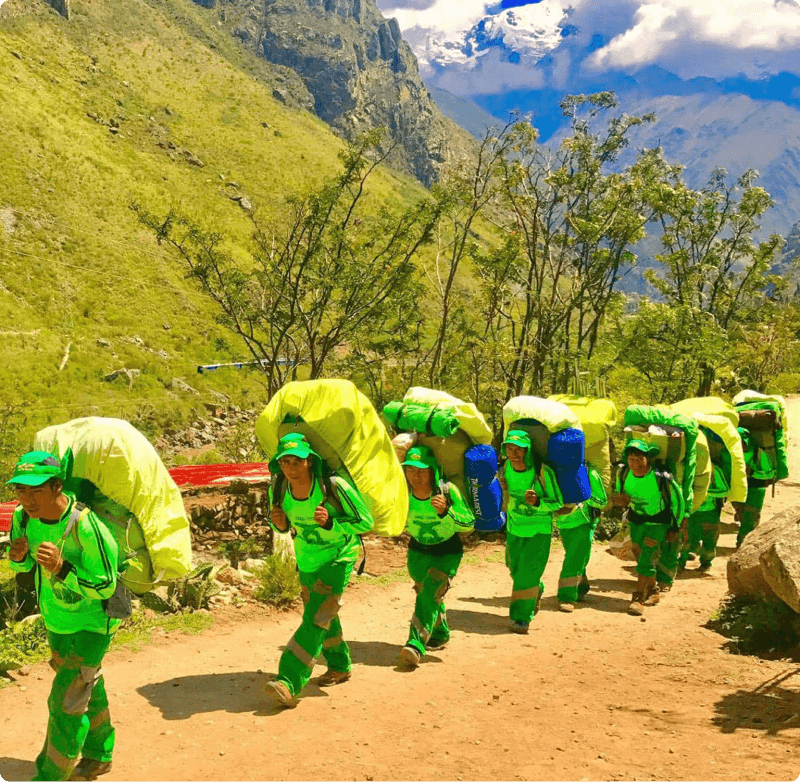 Porters will carry up to 7 kg of your personal items, which must include your sleeping bag and air mat (if you bring or rent one). From us, these two items weigh a combined total of 3.5 kg.
Porters will carry up to 7 kg of your personal items, which must include your sleeping bag and air mat (if you bring or rent one). From us, these two items weigh a combined total of 3.5 kg.